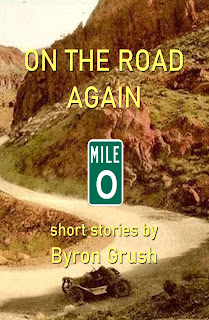Sample chapter from Across the Great Divide
Sample chapter from Across the Great Divide https://www.amazon.com/gp/product/B0FVZYY3T5 Chapter Twenty-five A Singed Cat is Better Than He Looks It is a lovely summer morning; one filled with great promise. The miners are looking forward to shining rewards from their dry diggings and coyote holes. Sam Grush and Howard Bicknell are off to their claim at Woodpecker Ravine south of Grass Valley; it is a new partnership. Kiba Aku is opening up the Pacific Restaurant, setting tables with plates and silverware Sam recently received from his brother back in Beverly, a good-wishes gift. Edward Elliot, the cook, is in the kitchen prepping lunch. George Kidd is with George Marsh surveying for a ditch they are building to bring water from the Yuba River to the Coyote Diggings near the town. Phoebe Kidd is visiting Mrs. Phelps at her home along the ravine. Above the hills east of the city a conspiracy of ravens is circling over a fresh deer kill, waiting for the wolf pack to have their fil...





